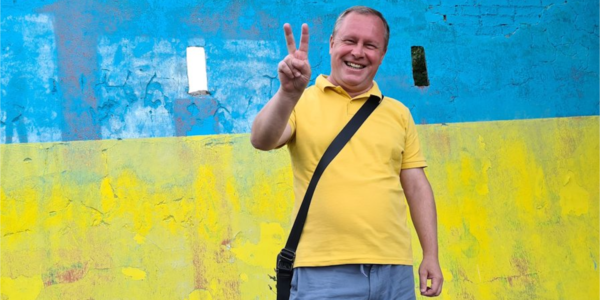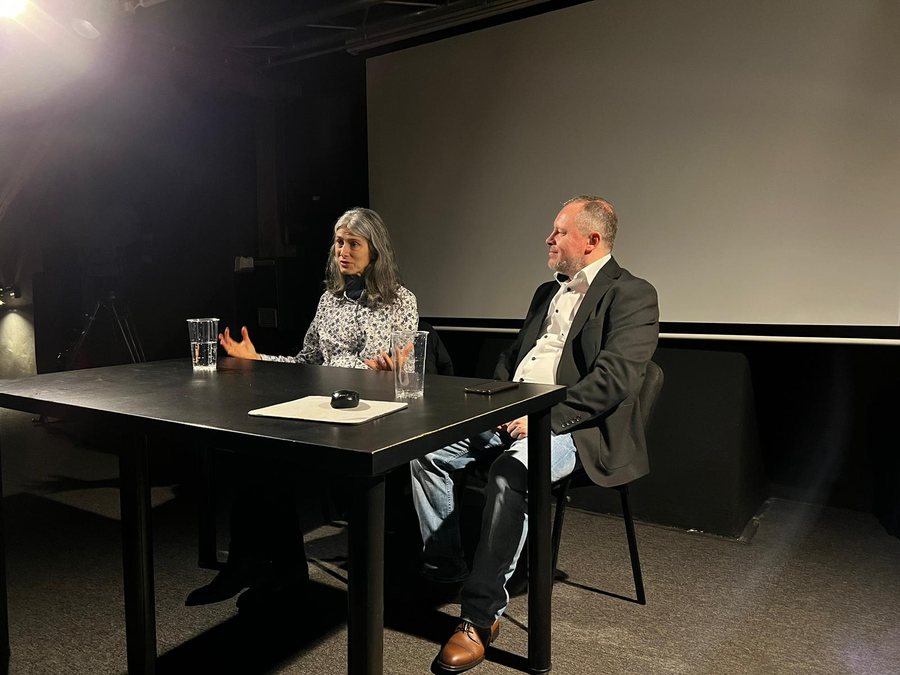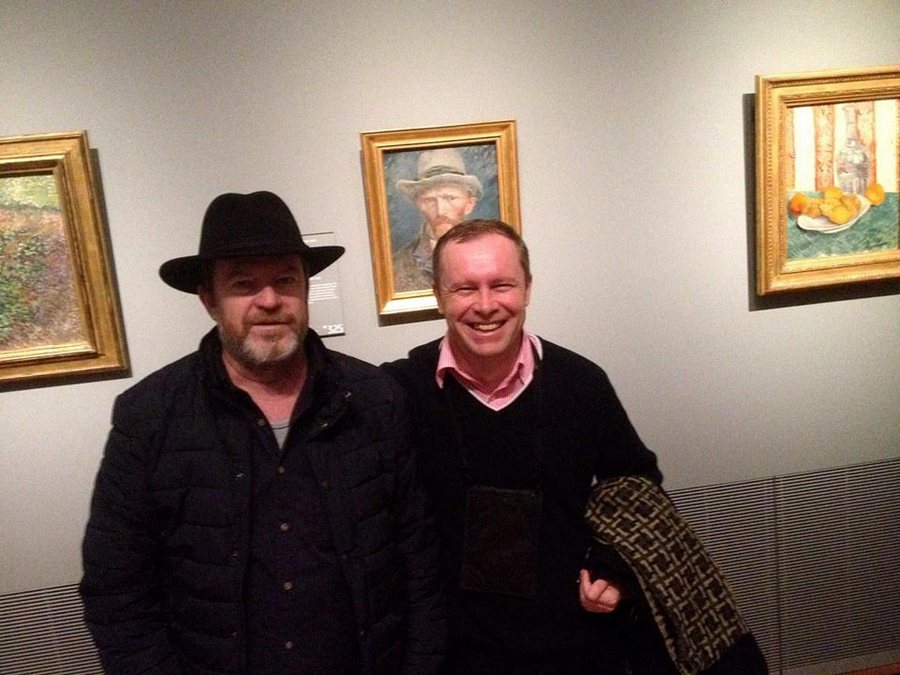The Violinist: A Story of Love, Loss, and Dreams in Gjirokastra

The silhouettes of their childhood come to life under the heavy shadows of the stone houses of Gjirokastra. Quick steps race down the cobblestone streets. A family lunch at the Bajo household, followed by the sound of a violin playing somewhere, and a forbidden nude sketch emerging on the back of an Enver Hoxha book cover… These vivid details from Saimir Bajo’s memory are captured with childlike sincerity in his film “The Violinist.” This movie, which began as one of the director’s earliest scripts 25 years ago, has taken on a new and profound purpose: a dedication to his brother, sculptor Arben Bajo. This artistic film, grounded in personal memories and authentic events, transcends its personal narrative to convey a broader generational message.
“The film’s message is that one might lose a love or a dream, but this should not lead to tragedy, rather it should inspire a new love and dream,” emphasizes Saimir Bajo, who has enjoyed a successful career in Czech cinema and television for years.

Director Saimir Bajo with best selling author Christine Leunens
The Genesis of “The Violinist”
In an exclusive interview with “Bordo,” Saimir explains that the film’s inception was not directly tied to the tragic loss of his brother Arben to COVID-19. He recalls being in Tirana a few days before Arben’s death, working on finalizing the film’s concept. The screenplay for “The Violinist” was among his first, written when he was still unfamiliar with scriptwriting, and he visited Gjirokastra to scout locations and begin preparations. Over nearly ten days, they discussed the script, with Arben offering suggestions, including one about an antenna to pick up Italian stations.
Despite the sudden, heartbreaking loss of his brother, Saimir was determined to complete the film. Supported by his mother, he temporarily put aside his projects in the Czech Republic and Lithuania to travel to Gjirokastra. Even without Arben by his side, Saimir found the strength to pinpoint locations and cast actors swiftly. He admits it wasn’t easy, as the pain of loss was intertwined with memories evoked by the city’s streets, where their talents and futures as artists were first nurtured.
Overcoming Adversity
Saimir recalls the challenge of filming under extreme conditions: shooting in four and a half days amidst a scorching 42 degrees Celsius heat, with barely two to three hours of sleep. Despite being devastated by grief, he felt stronger and more driven to honor his brother’s memory through the film. A film director and screenwriting professor at prestigious Czech film academies for over twenty years, Saimir often teaches his students that filmmaking is a lengthy process, yet this time, he worked against the clock to complete it.
He undertook multiple roles, from director to screenwriter and more, to ensure the film’s perfection. Despite feeling alone at times, surrounded by his team and actors, he managed to push through. Remarkably, he cast the child protagonists in a single afternoon, realizing his knack for finding the right cast for a children’s film.

A Deeply Personal Narrative
“The Violinist,” though widely perceived as a dedication to Arben, extends beyond Saimir and the Bajo family. It encapsulates Gjirokastra, the communist era they grew up in, and the dreams of two children seeking their path to the future. It also serves as a testament to the family’s artistic legacy, inspiring generations in the southern city.
Saimir’s high artistic sensitivity is evident as he recounts his bond with Arben. The film captures their shared childhood dreams and the poignant moments when Saimir realized his passion for music, inspired by his brother’s success in a clarinet competition. Their father, an engineer who fostered an artistic environment at home, played a crucial role, filling their lives with the sound of his accordion.
An Artistic Tribute
The film’s authenticity stems from Saimir’s honest portrayal of their childhood. Inspired by a child’s perspective, “The Violinist” tells the story of a boy who dreams of playing the violin, only to face innocent failures and rediscover new dreams and loves, ultimately deciding to become a director.
Reflecting on his relationship with Arben, Saimir paints a vivid picture of their inseparable bond – not just as brothers but as fellow artists. “Beni was always a leader, strong, a genius with outstanding talent. He always knew what he wanted. I grew up in his shadow, but he protected me. He was a brother, a friend, an inspiration, a confidant, and a critic. Even now, I feel his presence with me,” Saimir shares emotionally.
Saimir Bajo, a prominent director in the Czech Republic and Lithuania, is preparing to direct a successful true crime series for CME, the largest media group in Central Europe, and a feature film set to be shot in Italy and the Czech Republic in 2025. He is also collaborating on an ambitious project with the best-selling author and screenwriter Christine Leunens.
“My objective in cinema is humanity. I am deeply drawn to themes of individual freedom clashing with systems and power throughout history. Thus, the theme of freedom is central. ‘The Violinist’ was a drama of losing my brother at a young age, but this profound grief transformed into hope – a chance to remember Beni and bring him to life for the readers, to keep him always with us,” concludes Saimir Bajo.
The Violinist: A Story of Love, Loss, and Dreams in Gjirokastra